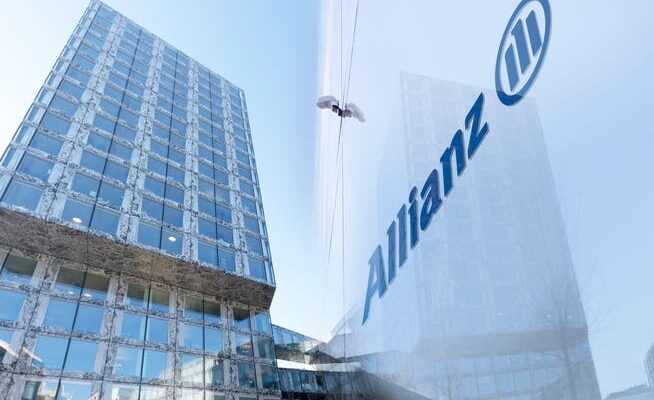The fourth-largest non-life insurer in Switzerland hardly grew in 2021, but remained efficient and profitable. In 2022, Allianz wants to be back in the fast lane with its car insurance.
Allianz Suisse would rather grow than stagnate.
Which is better: a profitable or a growing business? The question can hardly be answered in general. It is likely to have been raised a few times recently at Allianz Suisse in Wallisellen, and also at Allianz Group headquarters in Munich.
The competition is leaving
Because in 2021, Allianz Suisse hardly grew any more in the non-life business that is important to it. Premium income increased by 0.4 percent, from CHF 2.02 to 2.03 billion. As a result, Allianz Suisse, number 4 in the country, lost market share: According to the Swiss Insurance Association (SVV), gross premium income in the market increased by 2.7 percent.
Ruedi Kubat, who has been head of Allianz Switzerland since the beginning of the year, explains that the insurer has been reluctant to underwrite new risks in certain business niches because these areas have simply not been profitable for a long time. The other bright side of the coin is that Allianz Suisse continued to work very efficiently in 2021: it achieved a combined ratio of 90.6 percent. This is astonishing in that 2021 was actually a year with many losses due to a series of storms, hailstorms and floods.
Price pressure, for example in motor vehicle insurance, has certainly increased on the Swiss market, also because of new competition. However, whether the strategy of the cautious or the bold provider works can only be determined in a multi-year comparison: Those who calculate too tightly and offer too cheaply will only receive the receipt in the form of excessive damage over time.
But of course Allianz Suisse would rather grow than stagnate. Ruedi Kubat is therefore making big strides with “Drive”, the newly established motor vehicle insurance. This should work for all sales channels and enable the product to be adapted quickly, precisely and data-driven. Customers will hardly notice this at first. But both sales and the product specialists should be able to adapt the conditions more quickly and react more easily to new circumstances.
Defender of full insurance
In the life business, Allianz Suisse increased premium income by 1.7 percent, from CHF 1.67 to 1.70 billion. Both group and individual life business contributed to the growth. Like all of its competitors, Allianz Suisse has adjusted the conditions for full insurance for the second pillar; this is the “all-round carefree solution” with which the insurer relieves its customers, especially SMEs, of the investment risk.
However, Allianz Suisse may not have tightened its acceptance criteria for full insurance to the same extent as some of its competitors. It too cannot accept every SME, especially if it has an older group of insured persons. Or if there are many low-income earners among the employees, because then a large part of the assets are in the so-called BVG obligation, which must bear interest at 6.8 percent. Because of the legal situation, this simply does not pay off for the insurer.
However, Allianz Suisse sees a future for full insurance, as CFO Stefan Rapp explains. If interest rates recover and if a political reform of the second pillar succeeds, the business would certainly become much more attractive again. Full insurance is simply the more suitable solution for certain small companies that cannot or do not want to assume any risks on the financial markets. In addition, SMEs that choose a full insurance solution are usually very loyal customers. It is quite possible that they will then also take out a solution for daily sickness benefit or accident insurance from the same provider.
Allianz Suisse’s operating profit fell slightly, from CHF 366.6 million to CHF 359.2 million. According to CFO Stefan Rapp, this can also be attributed to the fact that it passed on a large part of the risks in an old portfolio of life insurance policies to a specialized reinsurer. The profit on the portfolio fell, of course, but Allianz Suisse is now less susceptible to rising interest rates or higher life expectancy. This frees up capital for other business; solvency should have increased significantly by the end of 2021 thanks to the transaction. (Allianz Suisse is not yet able to present figures on this for regulatory reasons.)
